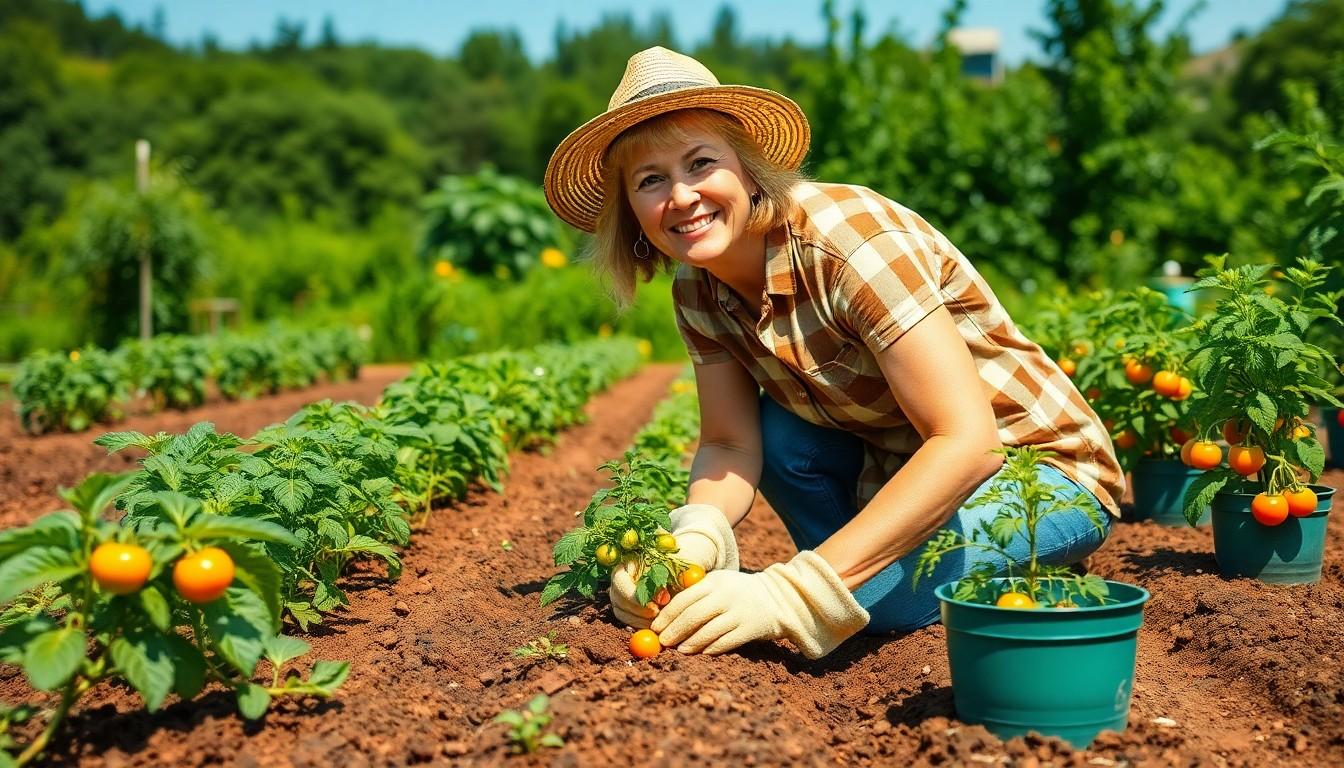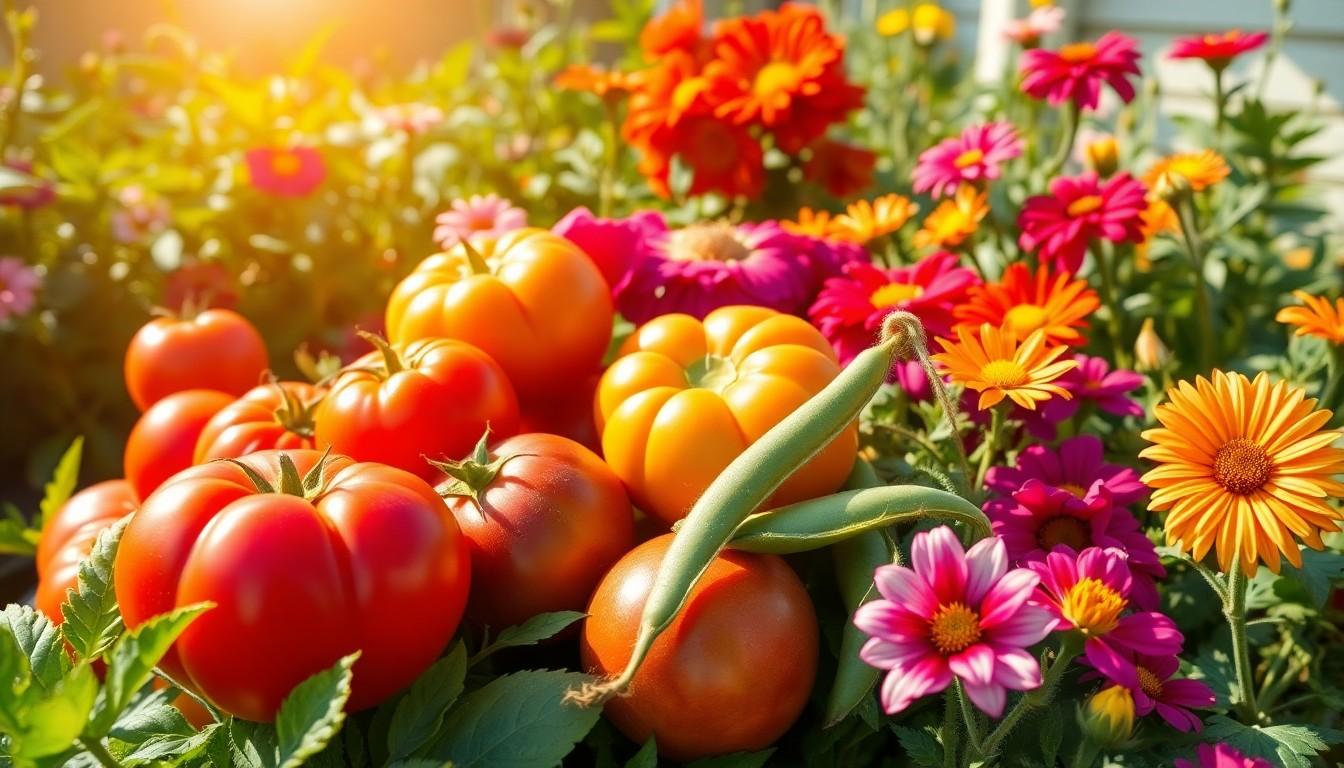Phone:
(701)814-6992
Physical address:
6296 Donnelly Plaza
Ratkeville, Bahamas.

In a world where grocery store produce often resembles plastic replicas of real food, organic gardening seeds offer a delightful escape. Imagine plucking a juicy tomato straight from your garden, knowing it’s free from pesticides and full of flavor. It’s not just gardening; it’s a delicious rebellion against bland, store-bought veggies.
Organic gardening seeds are seeds derived from plants cultivated without synthetic fertilizers, pesticides, or genetically modified organisms (GMOs). These seeds promote healthy growth and biodiversity.
Organic gardening seeds originate from plants grown under strict organic farming guidelines. Characteristics include non-GMO status and the absence of synthetic chemicals. Farmers often use heirloom varieties, known for their rich flavors and unique qualities. These seeds typically undergo certification processes to ensure they meet organic standards. Vital traits such as disease resistance and adaptability enhance their appeal for home gardeners.
Organic seeds offer numerous advantages for gardeners. They support environmental health by fostering biodiversity and reducing chemical runoff. Gardens using organic seeds develop healthier soil and ecosystems. Additionally, produce grown from these seeds often possesses superior taste and nutritional value. Using organic seeds empowers gardeners, providing a direct connection to food sources. Choosing these seeds aligns gardening practices with sustainability goals.

Organic gardening seeds come in various types, each contributing uniquely to a garden’s ecosystem. Understanding these types is essential for effective gardening.
Heirloom seeds refer to open-pollinated varieties passed down through generations. These seeds maintain consistent traits, providing gardeners with reliable and flavorful produce. Growing heirloom vegetables, like Cherokee Purple tomatoes and Blue Lake beans, showcases biodiversity. Many gardeners prefer these seeds due to their rich history and flavor profiles. Often, heirloom varieties exhibit resilience and adaptability, thriving in various climates. Selecting heirloom seeds supports local ecosystems and preserves genetic diversity.
Hybrid seeds result from the deliberate crossbreeding of two different plant varieties. These seeds often combine desirable traits, such as improved disease resistance and higher yields. Many gardeners choose hybrids for their robust growth and uniformity. Hybrid varieties like Early Girl tomatoes and Sugar Snap peas deliver consistent results. However, it’s important to note that hybrid seeds are not the same as GMOs, as they do not involve genetic modification. Utilizing hybrid seeds can enhance a garden’s productivity while ensuring quality harvests.
Choosing the right organic gardening seeds requires attention to several key factors. By selecting suitable seeds, gardeners can optimize their crop health and yield.
Consider seed source reliability. Look for certified organic seeds from reputable suppliers. Evaluate seed variety selection. Choose varieties that align with local growing conditions and personal taste preferences. Assess disease resistance traits. Select seeds known for their resilience against common local diseases. Factor in growth time. Fast-maturing varieties can provide quicker yields in shorter growing seasons, making them ideal for certain climates. Use these considerations to create a diverse and fruitful garden.
Adaptation to the local climate significantly impacts plant success. Identify the specific climate zone to choose seeds that thrive in those conditions. Select seeds that have traits perfectly suited for heat tolerance or cold hardiness based on local weather patterns. Evaluate soil types and moisture levels in the garden, as they influence plant growth. Include varieties that offer disease resistance to conditions prevalent in the area. Doing so ensures a productive garden that organically aligns with regional environmental factors.
Planting organic gardening seeds involves several best practices that enhance the growth and yield of plants.
Prioritize soil health by testing its pH and nutrient levels. Enrich the soil with organic matter such as compost or well-rotted manure, promoting beneficial microbial activity. Loosen compacted soil with a garden fork to improve drainage and aeration. Add mulch to preserve moisture and suppress weeds. Ensure proper moisture retention while maintaining nutrient availability. Each of these steps contributes to creating a robust environment for seeds.
Utilize proper techniques for optimal seed placement. Sow seeds at the recommended depth based on their size, ensuring even spacing for enhanced airflow. Water gently but thoroughly after planting, providing moisture for germination. Cover seeds lightly with soil, as this helps retain moisture while allowing sunlight to reach them. Thin seedlings once they sprout, giving the strongest plants space to thrive. Each technique supports healthy growth and maximizes productivity.
Embracing organic gardening seeds opens up a world of flavor and sustainability. Gardeners not only cultivate healthier plants but also contribute to environmental well-being. The choice between heirloom and hybrid seeds allows for a personalized gardening experience that enhances both productivity and taste.
By selecting organic seeds suited to their local conditions, gardeners can create vibrant ecosystems that thrive naturally. With proper planting techniques and soil preparation, the journey of growing one’s own food becomes even more rewarding. Organic gardening isn’t just a hobby; it’s a commitment to better health and a more sustainable future.